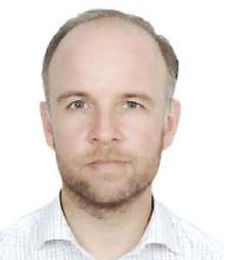Stuart Williams writes about the ‘path to professionalism’, both for the private security sector and for individuals.
Most security practitioners will agree that our industry is difficult to define; our capabilities and boundaries are vague and our work and business value frequently misunderstood. Everyone knows what a lawyer, doctor or architect does, but a security professional? Suddenly things are not so clear. Uncertainty is not only felt by members of the public, but also our colleagues in other disciplines, clients and even employers. In fact there is no single agreed position within our industry, so it is not surprising that ‘outsiders’ should have this perception. This lack of understanding is frequently reflected in our employment salaries and consultancy rates. While people accept high costs for a private medical or legal consultation, the rates for security are regularly questioned. Even in high risk environments where security has proven to be a genuine business enabler, the value of security may still be questioned.
Equally uncertain is career development; what is required to be a security professional in terms of academic achievement and experience? For a lawyer or doctor the career paths are well established and clearly articulated. Colleagues in engineering, surveying and accountancy can all point to being ‘Chartered’; again a term that people understand, accepted as being someone who has achieved a recognised level of competence in their chosen profession. But what of the security industry? What is our career path? How do you become a security professional? This lack of ‘professionalism’ in our profession was highlighted by Danie Addendorf in 2009. He commented that ‘fundamentally, private security suffers from an image problem’ and that ‘use of the word professional and profession in the security industry context is without any legitimate foundation’.
Personal path
I perhaps reinforce some of the stereotypes surrounding the industry. For me security is a second career, having first served as an officer in the Intelligence Corps in the British Army. However when I retired in 2004, I believe I was fortunate to join the industry at an interesting time, as things were beginning to change. My need for personal development coincided with the need for the industry to professionally develop. Membership of the Security Institute certainly helped, as did gaining a Masters degree in security management at Loughborough University. These two elements added academic rigour and some form of recognised validation to my previous experience. Most recently, I became admitted to the Register of Chartered Security Professionals. Others involved in this programme have explained the virtues of this scheme, however I want to focus on the process itself from the perspective of an applicant, and to encourage others to follow suit. Although perhaps daunting to applicants, I found the system to be clear, fair and relatively painless. My key impressions are:
Efficiency – the process is clearly defined, easy to follow and efficiently processed. From first application to final award, I knew what was expected, I was kept informed throughout and any questions were very quickly answered by the administrative team. The process is swift.
Robust – the process is rigorous and challenging but appropriately so. Whilst not overbearing, I was always under the impression that the responsibility was mine to provide the supporting evidence of my professionalism, both in the initial application and during the interview. It is not an easy ride, and both the application and presentation took a considerable amount of time to prepare, but it is certainly achievable by those who have operated at the strategic level.
Impartial – applicants expect any validation process to be honest and fair and I believe the CSyP have done well here. At one point in the process, my referee was identified as a possible assessor, but this was changed to remove this conflict of interest. Throughout the process I was given a sense of fairness, impartiality and integrity.
Flexibility – although the process is defined, flexibility is afforded to applicants. As an overseas applicant, I appreciated the flexibility allowed in my submission and most importantly, in arranging the date and location for my interview, which had to be arranged to coincide with a summer holiday in the UK. My overriding impression as an applicant is that the process is challenging but fair and robust. Applications are dealt with efficiently and help is available throughout. Providing you satisfy the criterion, applicants have nothing to fear and I would encourage people to apply.
Register step
Establishing the CSyP was a great step for the security industry towards professionalism; now it is incumbent on workers in that industry to apply and be admitted to the register, and for employers to mandate CSyP as a requirement for senior security positions. I believe the hard work is worth it – I now have professional standing within my industry. As a government employee in Abu Dhabi, accreditation is important (in fact an employment requirement). I now sit equally alongside my peer group of chartered planners, architects and engineers. I can now proudly and officially state that I am a chartered security professional. Not only does it feel good to say, it means something to others, something tangible that they can understand and appreciate.
References:
Adendorff, WD (2009) “In a culture where perceptions count more than reality, it is unsurprising that security practitioners call themselves professionals before the actual professionalisation of their occupation. Is this misleading, or is Security Management in reality a profession growing its domain? ” Unpublished dissertation for masters degree in Security Management: University of Loughborough.










